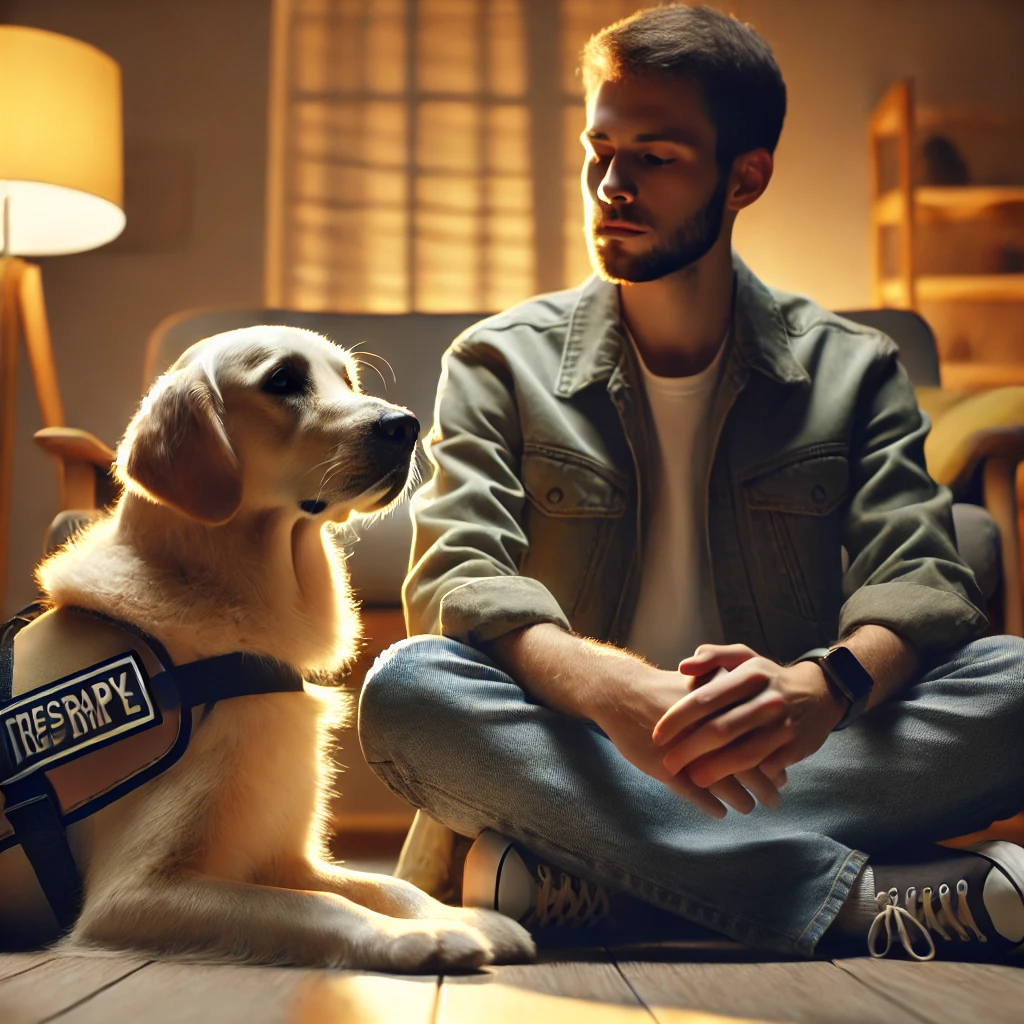How Dogs Smell Stress: Canine Reactions to Human Emotions
Canine Companions: Dogs Smell Stress and Respond Accordingly
If you’ve ever wondered why your dog snuggles up to you after a tough day, science has a heartwarming answer. According to a recent study, our furry friends can literally smell our stress and might even make decisions based on our emotional state. Let’s dive into the fascinating world of canine empathy and discover what this means for our bond with these loyal companions.
The Nose Knows: How Dogs Detect Stress
It turns out, a dog’s sense of smell is so acute that they can detect the subtle changes in our body chemistry that occur when we’re stressed. This study highlights that dogs are not just reacting to our tone of voice or body language—they are picking up on chemical signals that humans emit when feeling stressed.
- Dogs have up to 300 million olfactory receptors, compared to our mere 5 million.
- They can detect changes in hormones like cortisol, often called the “stress hormone.”
- Dogs use this information to understand our emotions, even when we’re trying to hide them.
From Sniffing to Soothing: How Dogs Respond
What do dogs do with this information? They often respond in ways that show they care. Many dog owners report that their pets become more affectionate, clingy, or protective when they sense their humans are stressed. This behavior isn’t just a figment of our imagination—it’s backed by science!
Research suggests that dogs may alter their own behavior to help alleviate our stress. For example, they might become calmer or more attentive, and some might even try to distract their owners with playfulness. This empathetic response is one of the many reasons dogs are so cherished as companions.
The Science of Canine Comfort: Why It Matters
Understanding that dogs can smell and respond to stress isn’t just a cute anecdote—it has practical implications. For instance, therapy and service dogs are often trained to assist people with anxiety disorders, PTSD, and other conditions where stress is a significant factor. Knowing that dogs naturally respond to stress can help in training them to provide better support.

Additionally, this knowledge can enhance our relationships with our pets. Being aware that our emotions affect our dogs can encourage us to create a more harmonious environment at home. After all, a happy dog is often a reflection of a happy owner!
Building a Better Bond: Tips for Owners
So, how can you use this information to strengthen your bond with your dog? Here are some tips:
- Stay calm: Your dog picks up on your stress, so managing your stress levels can help them stay calm too.
- Positive reinforcement: Reward your dog for their comforting behavior, reinforcing their natural empathy.
- Routine and stability: Dogs thrive on routine. Consistent schedules can reduce anxiety for both of you.
- Quality time: Spend time engaging in activities that you both enjoy, like walks, playtime, or simply cuddling.
Final Thoughts: Dogs, Our Empathetic Allies
Dogs truly are man’s best friend, and this study just adds another layer to our understanding of why. Their ability to smell our stress and respond in comforting ways shows a level of empathy that is both surprising and heartwarming. So next time you’re feeling down, remember that your furry friend is not just a companion but a natural therapist, ready to help you through the tough times with a wagging tail and a wet nose.
As science continues to explore the depths of the human-animal bond, one thing is clear: our lives are richer and our hearts fuller because of our beloved dogs. So give your pup an extra treat today—they’ve earned it!





Post Comment